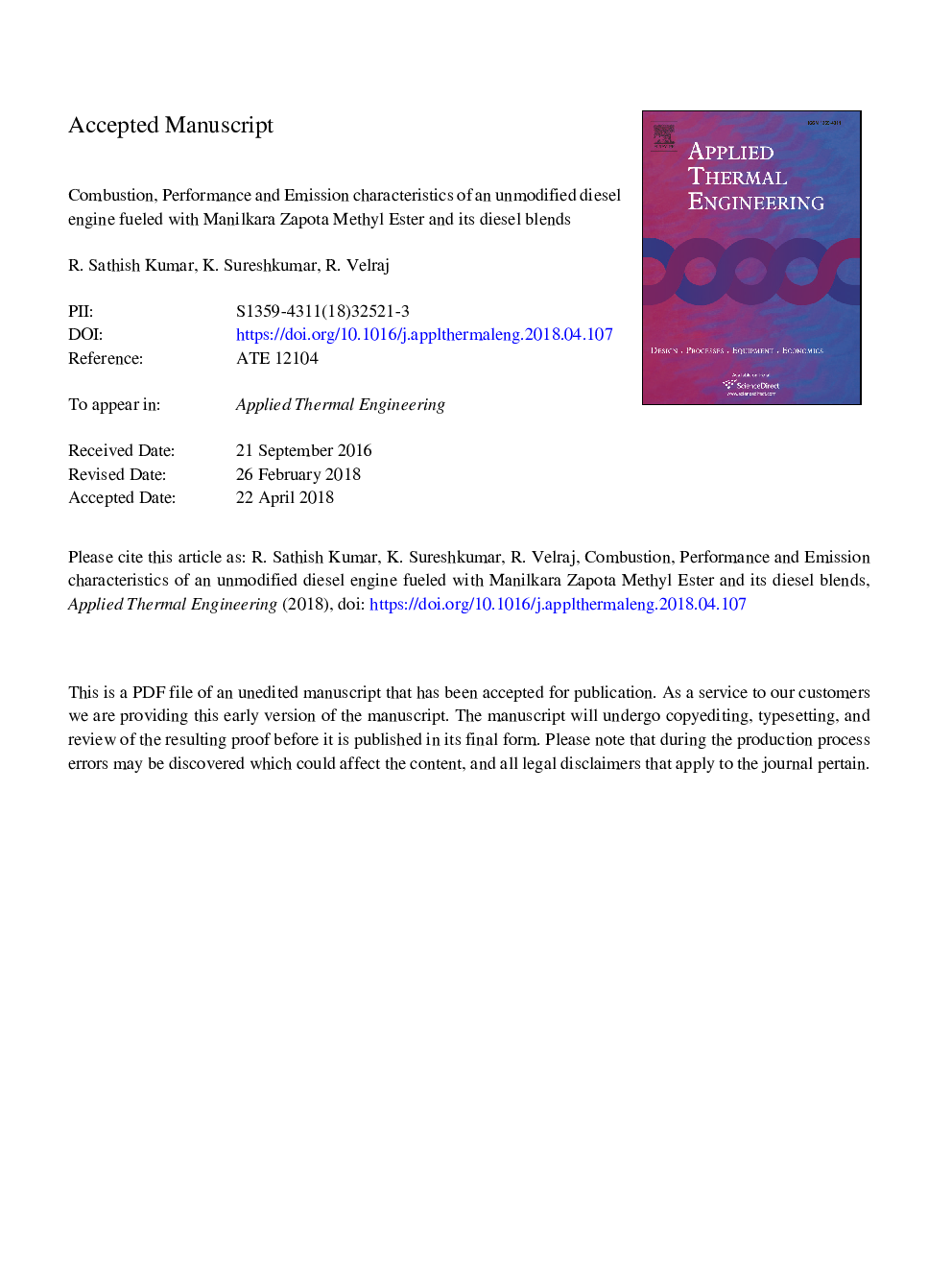| Article ID | Journal | Published Year | Pages | File Type |
|---|---|---|---|---|
| 7045113 | Applied Thermal Engineering | 2018 | 32 Pages |
Abstract
This research article highlights the results of analyses conducted to examine the combustion, performance and exhaust emission characteristics of an unmodified diesel engine fueled with a new third generation biodiesel derived from Manilkara zapota seed oil (MZO) and its blends with fossil diesel. Biodiesel was produced by the alkaline catalyst transesterification process using methanol along with KOH as catalyst. Five different test fuels were prepared and tested in a single cylinder direct injection compression ignition engine at a rated speed of 1500â¯rpm. Test fuel B50 (50% biodieselâ¯+â¯50% diesel) produced 17% higher brake thermal efficiency and 14.34% reduced brake specific fuel consumption along with a reduction of 34.21% and 4.32% in CO and unburnt hydrocarbon emission respectively as compared to fossil diesel. Although B50 produced 38.91% higher CO2 emission than that of diesel, equivalent amount of CO2 would have been sequestered during the growth of biodiesel plants, keeping the environment balance of CO2 level.
Related Topics
Physical Sciences and Engineering
Chemical Engineering
Fluid Flow and Transfer Processes
Authors
R. Sathish Kumar, K. Sureshkumar, R. Velraj,
